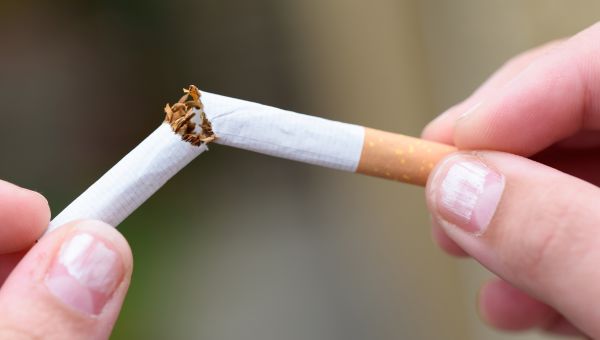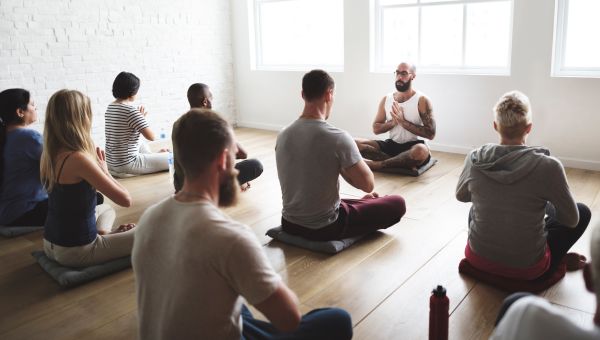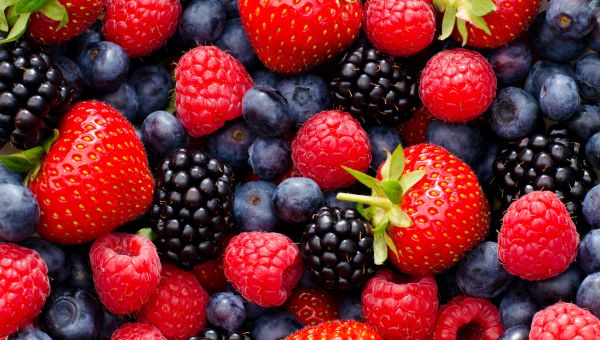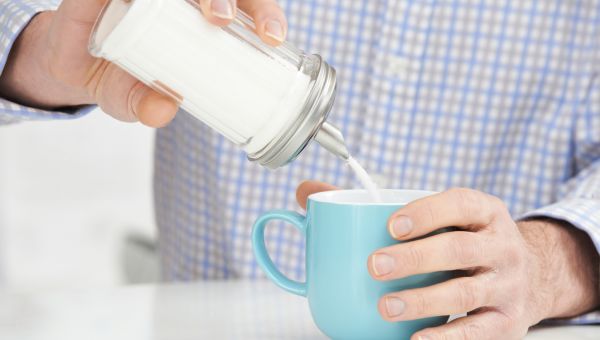6 natural ways to lower inflammation
Inflammation is a proven killer but there are simple things you can do to reduce it.
Updated on November 22, 2022

Inflammation is more than a buzzword; it’s one of the essential ways your body protects itself.
“Inflammation is a general response to some kind of stress that’s being placed on the body,” says Thomas Shook, PA, of Saint Agnes Medical Center in Fresno, California. “White blood cells and other chemicals are mobilized to an area to combat whatever injury there is.”
The problem occurs when the immune response continues after the damage is cleared up, or if there is no damage in the first place. If inflammation goes too far, or goes on for too long, it can contribute to serious health problems, from cancer to heart disease to depression.
What can you do about inflammation? Here are six natural ways to help tame it.

Get up and move
You know the soreness you feel after a workout? That’s inflammation, but a temporary, non-harmful kind. Studies show that exercising regularly actually reduces the other kind—the damaging inflammation in your blood vessels that can lead to heart disease and other problems. In fact, a small March 2017 study in Brain, Behavior and Immunity found that even one moderate 20-minute cardio session helped reduce this bad inflammation.
Researchers think that some of the chemicals released during exercise counteract the effects of the chemicals that increase inflammation. “Plus, you secrete hormones and neurotransmitters that can cause you to experience a sense of well-being,” explains Shook. If you’re new to exercise or have been out of the game for a while, start with a brisk walk and go from there.

Butt out!
Add inflammation to the long list of health risks from smoking. “Smoking affects every cell in your body,” Shook says. “The tobacco burning itself and the byproducts are both hugely inflammatory.”
Quitting is hard—the United States Surgeon General’s office has declared nicotine to be as addictive as heroin and cocaine. Still, it’s one of the best things you can do to cut your chances of disease and reduce inflammation. In fact, a small 2021 study published in Scientific Reports found that inflammation levels remained lower a full year after participants started a 12-week smoking cessation program. Setting a quit date can help you put tobacco down for good.

Get enough shut-eye
“Sleep is restorative,” says Shook. “It allows your body to rebuild and repair itself.” Research suggests that not getting enough sleep can raise inflammatory markers. Experts generally recommend that most healthy adults get seven to nine hours of sleep per night; seven to eight hours if you’re aged 65 or older.
But be careful, it may not be as simple as the more sleep, the better. Several studies have found that long sleep durations are associated with higher levels of inflammation.

Cut your stress levels
In the distant past, stress helped our ancestors fight off or flee from hungry predators. Stress is still a trigger of that important fight-or-flight response, but times have changed. Today, instead of life-or-death skirmishes, typical day-to-day worries include concerns about money, work, and family. While they may seem comparatively small on their own, multiple unrelieved stressors like these can accumulate over time.
“What you have is this chronic low-grade stress,” says Shook. "But the body’s still interpreting it with the fight-or-flight mechanism." Though there's evidence that the stress hormone cortisol helps keep inflammation at bay, when stress levels are chronically high, cells develop a tolerance, cortisol can’t do its job as well, and inflammation goes unchecked. This constant tension can harm your physical and mental health, leading to conditions like heart disease and depression.
Shook recommends meditation as one effective strategy for cutting stress. A few minutes of stillness each day is enough to get started.

Eat antioxidants
Free radicals are nasty little molecules that can harm cells. If there are too many around and they do enough damage, free radicals can even kill cells, leading to chronic inflammation.
But free radicals have natural predators known as antioxidants, which can stop the cell death process and help prevent inflammation.
What’s the best way to supply your body with antioxidants? Eat healthy, wholesome food, says Shook, especially plants. “Eating a diet rich in fresh, plant-based products will provide you with enough nutrition and antioxidants to combat those cellular stresses,” he adds. Antioxidant-rich nibbles include berries, nuts, tea, coffee, and high-cacao chocolate.

Avoid certain carbs (especially added sugar)
“Anybody dealing with or who wants to prevent chronic inflammation should get as much sugar out of their diets as they can,” says Shook. Added sugar and refined grains may trigger the release of chemicals that cause inflammation. The American Heart Association recommends consuming no more than 36 grams of added sugar a day for men and 25 grams for women.

UC San Diego Health. Exercise … it Does a Body Good: 20 Minutes Can Act as Anti-Inflammatory. January 12, 2017.
Dimitrov S, Hulteng E, Hong S. Inflammation and exercise: Inhibition of monocytic intracellular TNF production by acute exercise via β2-adrenergic activation. Brain Behav Immun. 2017;61:60-68.
U.S. Surgeon General/Centers for Disease Control and Prevention. Smoking Cessation: A Report of the Surgeon General, 2020: Introduction, Conclusions, and the Evolving Landscape of Smoking Cessation 33. Accessed November 22, 2022.
Derella CC, Tingen MS, et al. Smoking cessation reduces systemic inflammation and circulating endothelin-1. Scientific Reports. 24122 (2021).
Mullington JM, Simpson NS, Meier-Ewert HK, Haack M. Sleep loss and inflammation. Best Pract Res Clin Endocrinol Metab. 2010;24(5):775-784.
Centers for Disease Control and Prevention. Sleep and Sleep Disorders: How Much Sleep Do I Need? Last reviewed September 14, 2022.
Williams CJ, Hu FB, et al. Sleep duration and snoring in relation to biomarkers of cardiovascular disease risk among women with type 2 diabetes. Diabetes Care. 2007 May;30(5):1233-40.
Patel SR, Zhu X, et al. Sleep duration and biomarkers of inflammation. Sleep. 2009 Feb;32(2):200-4.
Grandner MA, Buxton OM, et al. Extreme sleep durations and increased C-reactive protein: effects of sex and ethnoracial group. Sleep. 2013 May 1;36(5):769-779E.
American Heart Assocation. How Too Much Added Sugar Affects Your Health Infographic. Accessed November 22, 2022.
Reichert V, Xue X, Bartscherer D, et al. A pilot study to examine the effects of smoking cessation on serum markers of inflammation in women at risk for cardiovascular disease. Chest. 2009;136(1):212-219.
Irwin MR, Olmstead R, Carroll JE. Sleep Disturbance, Sleep Duration, and Inflammation: A Systematic Review and Meta-Analysis of Cohort Studies and Experimental Sleep Deprivation. Biol Psychiatry. 2016;80(1):40-52.
More On


video

article

slideshow


video


video
